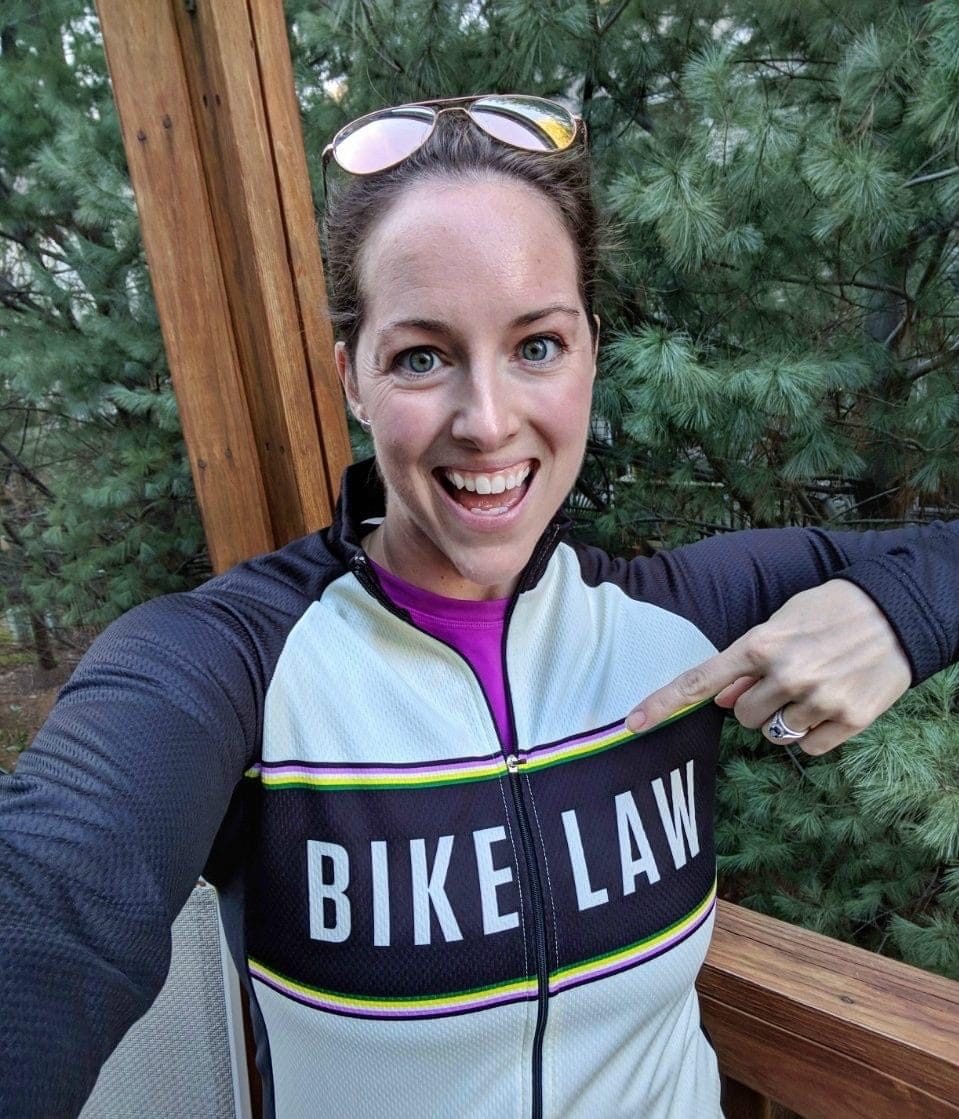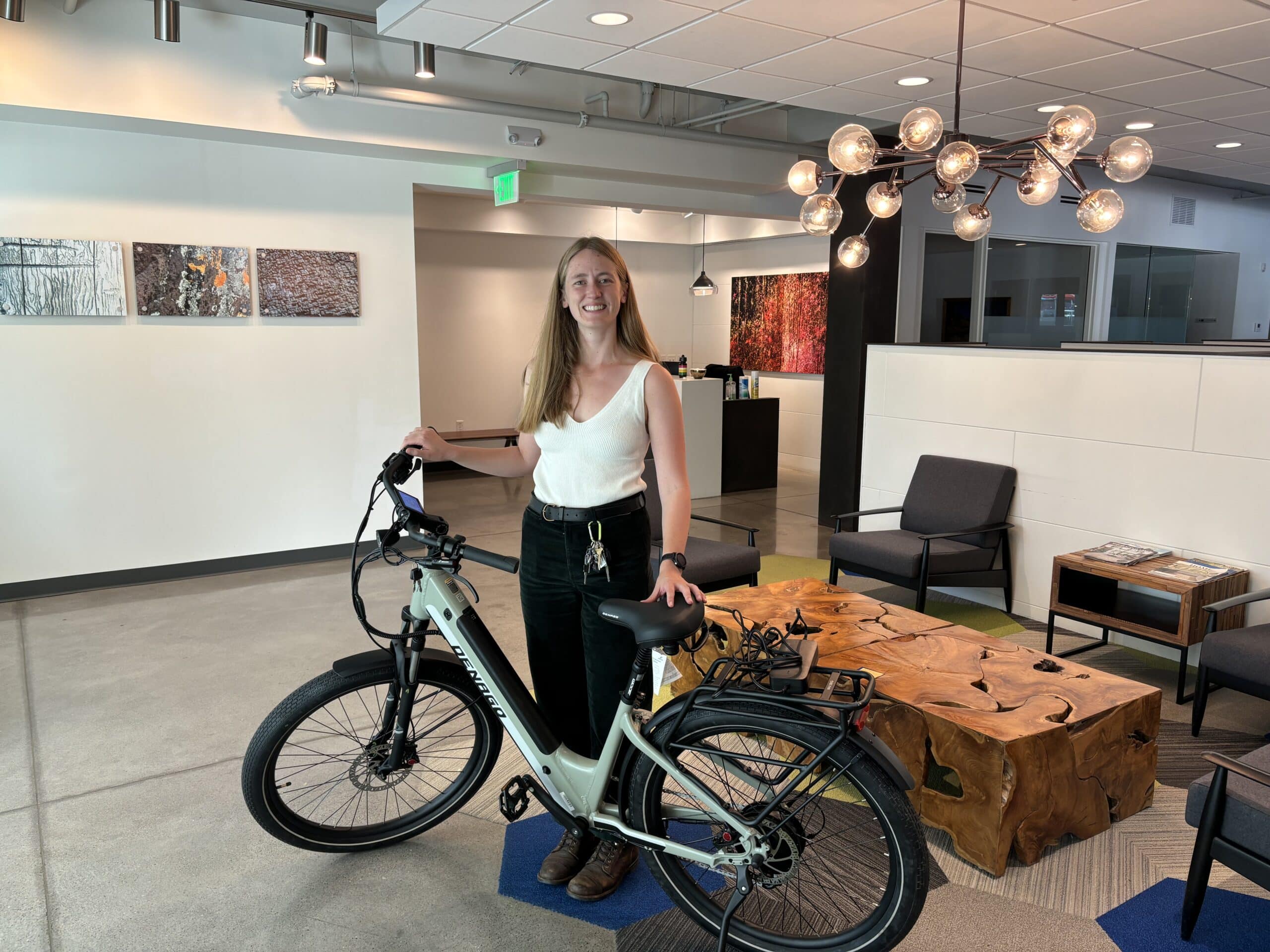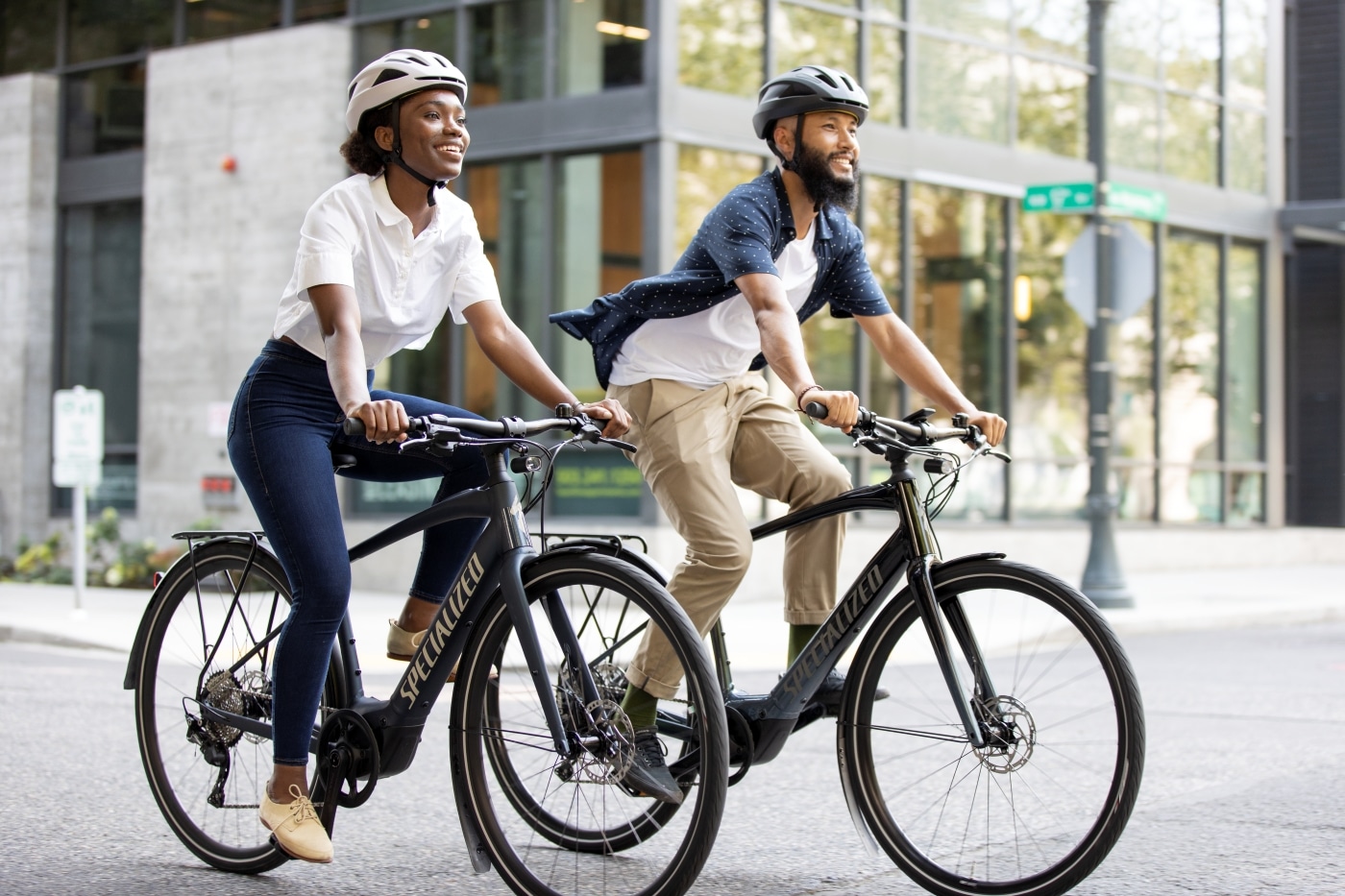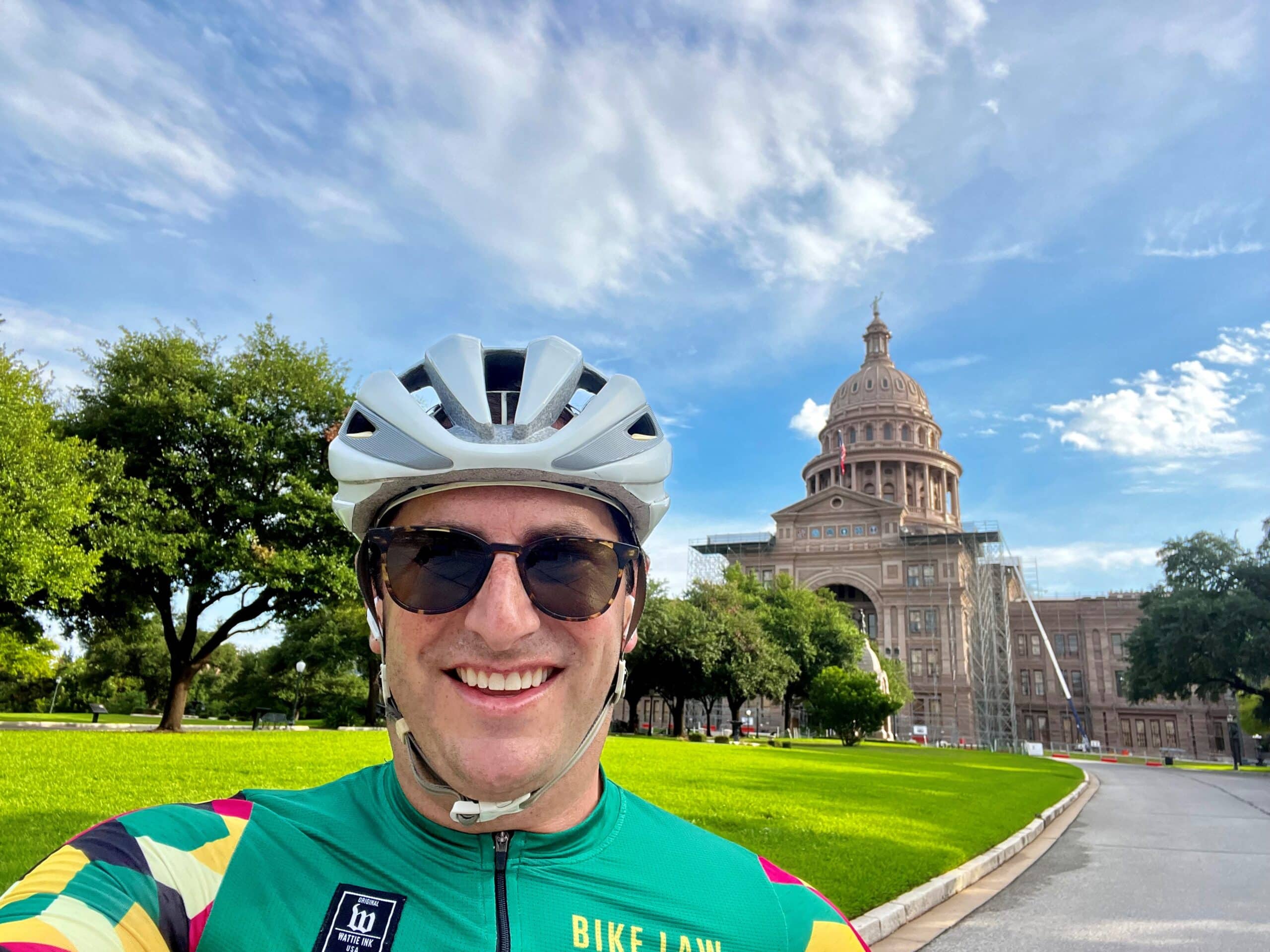There’s something magical about this time of year for most competitive long course triathletes. While it’s an honor earned by/bestowed upon a relative few, there is a powerful experience to be had, even as a spectator or supporting member of the racing athlete’s team or crew. For the elite age-group participant, the Ironman World Championships demands, above all else, humility, and an unbreakable willingness to dig deeper into one’s most fortuitous qualities should they want to finish the 140.6 miles of ocean swimming, biking, and running through Hawaii’s smoldering lava fields before the midnight cutoff time on race day.
The day is long. 17 hours seems like a lifetime. While unique in so many ways, it’s much like the rest of life where those who are most successful realize that every second counts.
I’ve never raced Kona, and as a mediocre, non-competing (retired) long course triathlete, I can’t speak to the wonder of pushing through so many grueling miles on the most beautiful but unforgiving World Championship course. But I can tell you that watching its demands on the human mind, body, and spirit being met by ~2000 of the strongest, fastest, most elite competitors in sport has had a lasting impact on how I and so many like minded others see the world and our perspectives about doing things that are seemingly impossible.
Women on Bikes: Sara Colangelo
It’s no surprise that my friend Sara Colangelo has personal connections to this important international sporting event, a similar appreciation for how hard we must work to accomplish such difficult endeavors, and a life story and purpose that can only be described as equally inspired as it is inspiring.
She is not “just” a multi-time Ironman finisher and competitive triathlete, business owner, activist, mother, wife, sister, daughter, advocate, and friend. She is also the Director of the Environmental Law & Policy Program, and an Adjunct Professor of Law at Georgetown University Law Center, one of the most prestigious in the world.
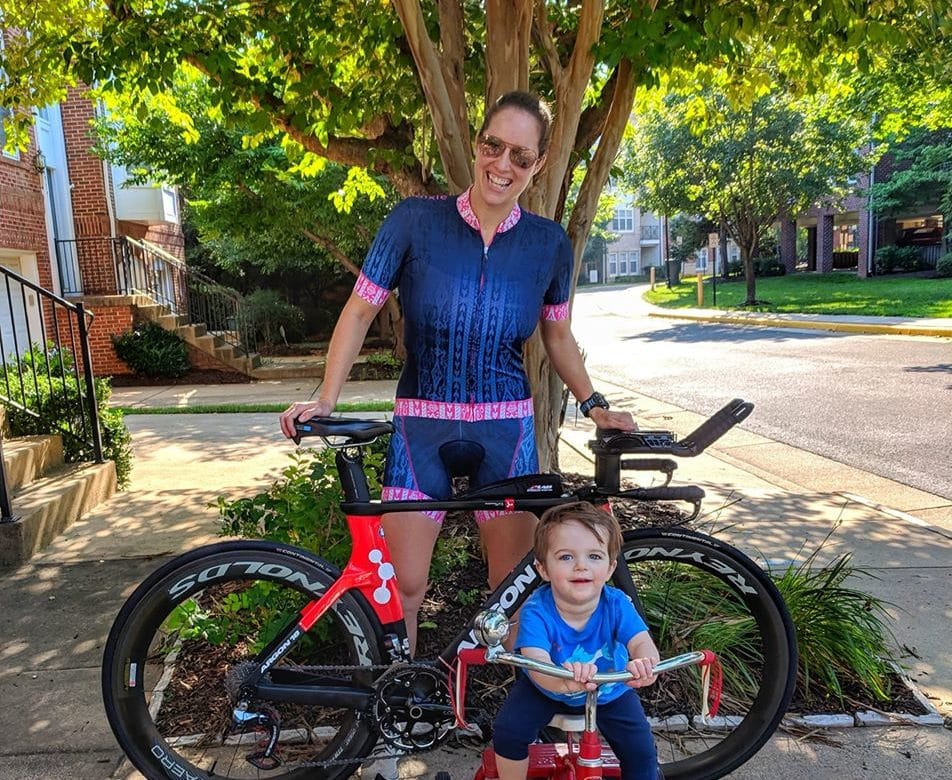
As one of the 2 recipients of the Charles Fahy Distinguished Adjunct Professor Award for 2019-2020, she has been instrumental in shaping the Law Center’s curriculum, counseling its students (and counseling me), growing engagement in extracurricular activities, and creating a space for the next generation (who may never race or spectate the most universally respected multisport event in the world) to see what it’s like to watch someone turn themselves inside out- while maintaining their composure- to cross the finish line and affect change.
When you know someone who is willing to self-sacrifice to accomplish something most people can’t even imagine attempting, there’s a special lesson to be learned if you pay attention and can be present. One of the things that qualifies Kona and its competing athletes to stand in a class of their own is that to succeed on course, one has to melt (sometimes literally) into and respect the environment and its conditions. And they are unlike any other.
We all have a responsibility to treat our planet and each other well. It’s the only inhabitable place we have to live. How we do so has a direct and cumulative impact on its health, and thereby our own. And our approach to protecting it should be recognized as the most important movement whose great leaders and agents for activism like Sara are necessary for its preservation.
Sara, the Bike, and Family Roots
I believe that riding a bike is the fastest way to save the world. The places that make the necessary investments to do it safely and often also tout the greatest economic, cultural, physiological, and environmental health. There are few things in life that offer such rewards in a relatively short period of time. Cycling happens to be one of them.
Sara says, “I tap into a different part of myself when I’m on the bike as compared to my family, friend, or professional sides. In life it can also be hard to find areas where your output directly reflects your input. My riding actually reflects my efforts and consistency, and that’s a rarity in life. It’s a way to connect with my family roots — my mom did triathlons back in the mid 80s. My Uncle John was the first triathlete in our family. Madam Pele cast her spell when he raced in Kona: He fell in love with the island, moved there and never returned to the mainland. He passed away last summer after a short but brutal battle with cancer, close to the start line of his beloved race. Sometimes when I ride I think about what it would have been like to ride with him, or how he might approach a certain portion of a ride.”
Sara makes me think about what she might do when I’m staring down a particular challenge and I’ve called on her more times than I can count when I need a gentle tail wind or a champion’s perspective.
Sara as an Agent of Change
It’s her willingness to settle into personal discomfort in a way that benefits not only herself but the general public as well that makes her an effective SPOKESwoman for bicycling, our planet, and the justice we seek for both. As a former trial attorney for the Environmental Enforcement Section and Department of Justice, and a leader in our bike and multi-sport communities, Sara’s interests in growing the number of people on bikes, empowering the women who are responsible for doing so in the last few decades, and advocating for the only place we have to push the pedals around (or swim or run) are felt and expressed every day and in all ways.
Sometimes the hardest part of any endeavor is getting started. The planet is big. An Ironman is long. The bike leg is 112 miles, to be exact. Perhaps the idea of clean oceans and air seems as unrealistic as riding that far after swimming 2.4 miles and immediately before running a full marathon (26.2 miles). Maybe the only reason for not taking the first step towards a wholly better future- one that must include bicycling for all the reasons mentioned above- is because no-one’s invited you or made you feel welcome.
Sara lives and works to change that. She and her husband own Speed Sherpa, a multisport coaching and racing team and family that breaks down barriers by practicing inclusivity, sportsmanship (on and off course, in and out of the saddle), kindness, and commitment. The very green arrows we all know in the context of environmental sustainability have come to define the ethos celebrated amongst the Speed Sherpa Nation: regardless of age or ability, we all have something to learn from and offer to one another. We can recycle knowledge and experiences, and the investments we make in our surroundings and in one another — TOGETHER — have direct and rapid returns.
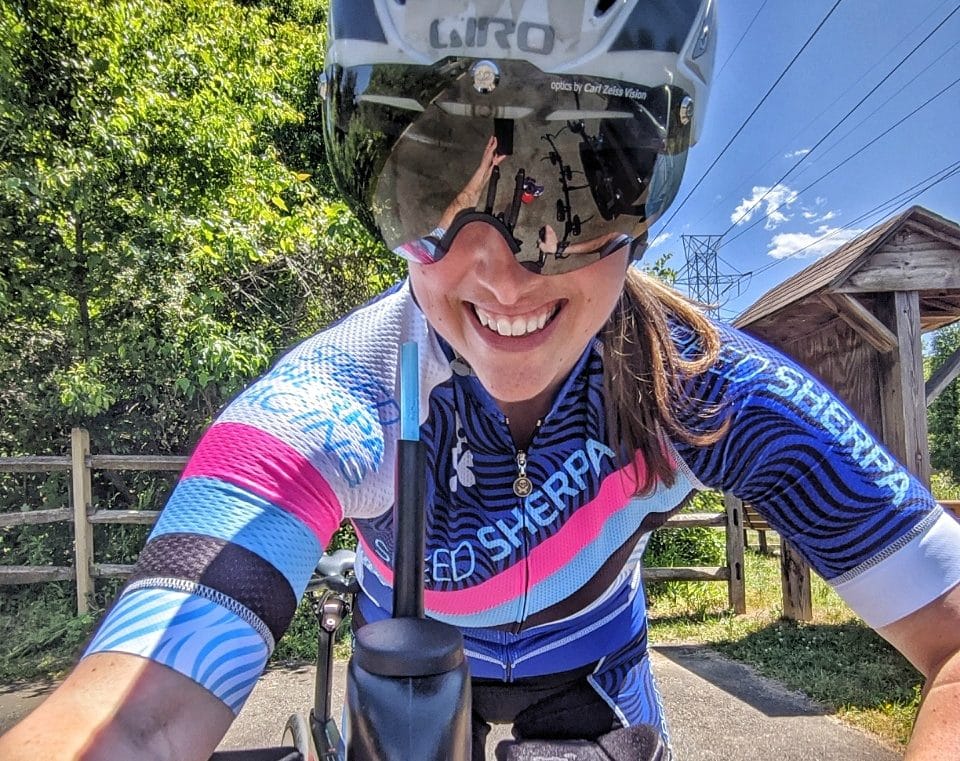
Sara says, “Bikes are a community builder. Groups of cyclists are able to find common ground over their love of the bike and momentarily let go of the hyper-partisanship that can grip us in everyday life. Inclusivity is one of Speed Sherpa’s founding principles for this reason – we don’t create team designations based on ability so that everyone can feel part of the same community and learn from one another. We believe this is particularly important to recruiting and maintaining participation of women athletes.”
Independence, autonomy, empowerment, and joy are repeating themes amongst all of the women I’ve been featuring over the last week as we approach Women’s Cycling Day. And coming from all places, professions, and life experiences, it’s remarkable to me that we all have something so compelling in common.
Sara adds that the best thing about the bike is “the strength it instills and the freedom it inspires. Cycling can challenge me physically and mentally, or it can be purely relaxing and fun. Either way, it’s a release from stress and time to fly.” Conversely, but relatable in so many other facets of life including her professional endeavors and the mission we have at Bike Law, she continues to explain some of the associated difficulties. “The logistics. No matter how much you’ve honed your set up inside, or how often you’ve tackled the same route outside, sometimes things go awry. For those already in the cycling community, I believe access to safe riding locations is one of the biggest challenges we face. The number of cyclists hit by drivers while in races, on clearly visible group rides, etc. has really shaken many people in our community. There remain barriers to entry for novice cyclists as well, including the cost of equipment and finding role models within certain communities to help inspire people to cycle.”
Women on Bikes: Leading by Example
We can fix the things that are broken. We just have to make the time and put in the effort to lead and encourage others to do the same. Like she does for her law students and her Speed Sherpa athletes, Sara leads by example with a champion’s approach to community building and preservation. She advises us all to “empower women with education on bike basics and maintenance; create safe group ride dynamics and logistics; and normalize time in the saddle as time spent releasing stress and bettering ourselves so we can return to our families to be the best partners and parents possible!” She explains that “last year Speed Sherpa spent quite a bit of time identifying barriers to entry for women in triathlon, and specifically cycling. We heard many women express apprehension around group rides, safety on the rides, bike maintenance, and sacrificing time with family.”
There is a special kind of life practice that’s called upon in Kona. And while not everyone will qualify for or experience the most extreme test of physical endurance by the conditions of the biggest event in competitive long course triathlon, we are all toeing the line in a different kind of race. We are all competing within ourselves to be better, stronger, and more courageous. We are called to invite, inspire, and invest in the scalable and sustainable growth and improvement of cycling and of the only planet on which we can push the pedals around.
“Riding is my moving meditation. I access and unleash a different part of myself when I’m on the bike that can be unabashedly fierce or just fun.”
That sounds harmonious to me. And whether you’re an elite triathlete riding through the hot, gusty lava fields on the Big Island of Hawaii or one of the many Women on Bikes cruising on a trail with your family on a perfect Sunday morning, having the courage to tap into yourself and the environment around you is the courageous love and respect for life that will save us and our planet.
It’s the very definition of the Aloha Spirit.

Rachael Maney is the Director of the Bike Law Network and of the non-profit Bike Law Foundation.
